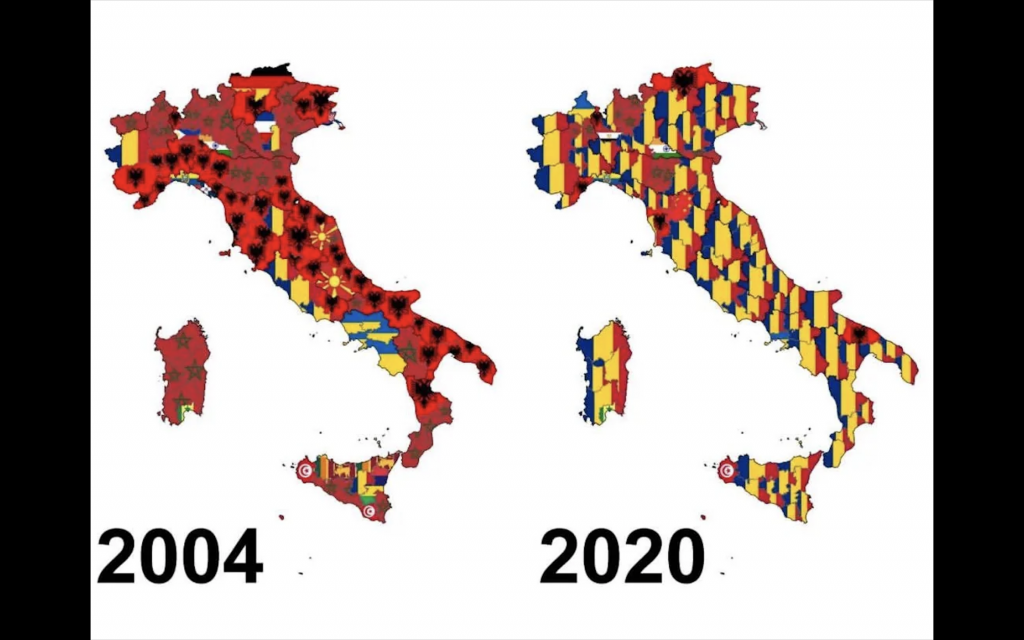Race
I was born in a small town near Napoli in the southern part of Italy, and I grew up in a community where diversity didn’t exist or was mainly dominated by a monoculture.

Nonetheless, in the early 90s’ I had the fortune to watch for the first time in my life ‘Do the Right Thing’, which is one of the cinematographic masterpieces directed by the Black-American movie director Spike Lee and released in 1989.
I was mesmerised by how different communities represented by Blacks, Asians, Latinos, and Italians were living together in Brooklyn and at the same time, worried about this fragile conviviality as perfectly depicted by Spike Lee.
In one of the greatest scenes of Do the Right Thing, Pino (John Turturro) and Mookie (Spike Lee) begin a conversation about how Pino’s heroes (Magic Johnson, Eddie Murphy and Prince) are all Black, and he is unaware of his unconscious racism. The rest of the scenes see a concatenation of racist stereotypical statements against other cultures and races.

As a southern Italian, the only real encounter with ‘racism’ was when some guys from Milan, which is the economic and financial epicentre of Italy, called my friends and me ‘peasants’ and my answer was: “It is thanks to peasants that you are not starving”. To quote Isabelle Stanger: “the idiot is the one who always slows the others down, who resists the consensual way in which the situation is presented…. the idiot will neither reply nor discuss the issue” (2005).
That experience really clicked something because it was powerful and vivid. As the Chief Global Inclusion Officer at Warner Bros. Discovery, Asif Sadiq (2023) asserts during a TED talk,”If we are going to teach people about diversity….let them have experiences”.
Nonetheless, education and history taught at school have always modified the narrative and distorted realities by glorifying the conquistadores and colonisers and depicting the colonised as uncivilised.
At the beginning of episode 3 season 4 of the American TV series produced by HBO in the late 90s and early 2000s’ ‘The Sopranos’, Silvio Dante driven by his pride for Cristopher Columbus ignores that the explorer also exterminated thousands of native-Indians and vehemently attacks those ones who want to protest against the Columbus Day parade.

As the French philosopher Michael Foucault (1983) stated: “The strategic adversary is fascism… the fascism in us all, in our heads and in our everyday behaviour”
The lack of perspectives and points of view have conceived bias and prejudices since the very stages of our lives leading people towards supremacy, power and domination. The erosion of this monochrome framework and paradigm and the opening of new paths are the main challenges to bring into our education system.
In one of the tasks that I have devised for the ACP Photoshop, I encourage students to make physical collages in groups of 3 and then digitalise them.
In virtue of this, students from different corners of the World have explored each others’ imaginations and legacy instead of merely facing an apathetic screen.
These little tasks, combined with other activities, will surely shift our perceptions towards other races, bringing us closer. As Mr Fingers sings in the song ‘Can You Feel It’ (1986): “You may be black, you may be white; you may be Jew or Gentile. It doesn’t make a difference in our House and this is fresh!
References
Do The Right Thing (Race Rant Scene). (2008). YouTube. Available at: https://www.youtube.com/watch?v=cOxOR3x8FBQ [Accessed 12 Nov. 2019].
Foucault. (1983). Preface. Retrieved from https://libcom.org/files/Anti-Oedipus.pdf(open in a new window).
HouseNationChicago (2007). Mr Fingers – Can You Feel It. [online] YouTube. Available at: https://www.youtube.com/watch?v=tFuujExs03A [Accessed 21 Jun. 2025].
Reddit.com. (2025). Reddit – The heart of the internet. [online] Available at: https://www.reddit.com/r/Maps/comments/1jpb35g/italy_before_and_after_most_migrants_in_each/ [Accessed 21 Jun. 2025].
Stengers, Isabelle. The Cosmopolitical Proposal. In Making Things Public: Atmospheres of Democracy, Bruno Latour and Peter Weibel (eds.). Cambridge, MA: The MIT Press, 2005.
TEDx Talks (2023). Diversity, Equity & Inclusion. Learning how to get it right | Asif Sadiq | TEDxCroydon. YouTube. Available at: https://www.youtube.com/watch?v=HR4wz1b54hw.
The Soprano (2011). Columbus Day – The Sopranos HD. [online] YouTube. Available at: https://www.youtube.com/watch?v=jBD61skoMk8https://www.youtube.com/watch?v=jBD61skoMk8 [Accessed 21 Jun. 2025].

Leave a Reply